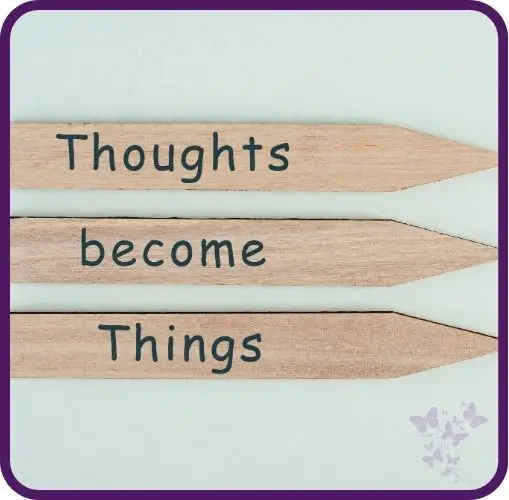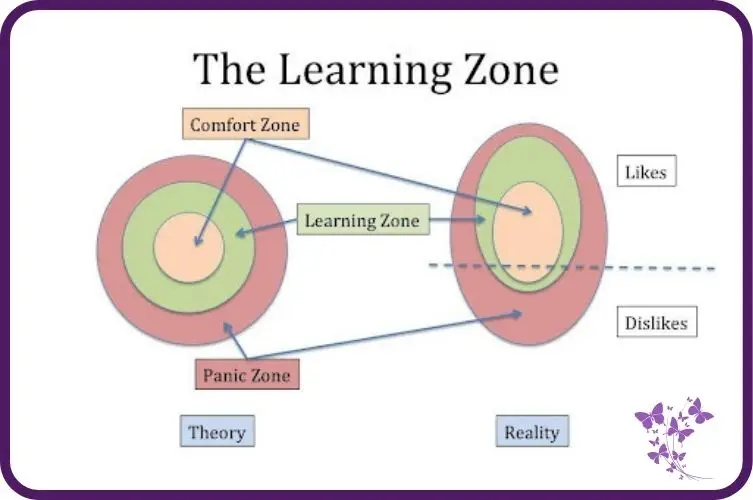Mindset Matters: Your Secret Weapon to a Happier, More Successful Life
Let’s talk mindset. You’ve probably heard the term tossed around in motivational speeches, self-help books, and those Insta captions that make you want to take on the world while sipping your third cup of coffee. It’s almost as common a term for discussion as ‘diet’ with just as many variations and quick fixes championed by those lucky enough to have a productive one. But what exactly is a mindset, and why does it seem like every successful person swears by having a “positive” one? What do they mean by positive, and more importantly, how do you get one for yourself? Spoiler alert: You can’t pick it up at Tesco, along with your favourite face mask and a tub of ice cream. But stick with me—I promise it’s worth the effort.


What is Mindset, Anyway?
At its core, your mindset is the set of beliefs and attitudes that shape how you see yourself and the world around you. Think of it as the lens through which you view life. Some people’s lenses are rose-tinted, always seeing possibilities and opportunities, while others might be a little smudged with doubt, fear, and maybe even a touch of cynicism. Many people claim to have a positive mindset when they are just overly idealistic and usually underprepared. How do you separate the narcissist and the dreamer, who can both outwardly appear to be positive, from the genuinely productive?
Psychologist Carol Dweck, the queen of mindset research, introduced us to the concept of fixed and growth mindsets. If you have a fixed mindset, you believe your abilities and intelligence are static—you’re either born with them or not, or they are fixed at the level they were when you left school. You feel the effort required to change something is too great, and the reward is not worth the price. You fear failure as a consequence, so avoid taking risks which stifle personal growth.
On the flip side, if you’ve got a growth mindset, you see your abilities as things you can develop and improve over time through effort, learning, and a sprinkle of perseverance. Failures are seen as temporary setbacks and learning opportunities for future growth. People with growth mindsets tend to be more resilient, persistent and open to feedback.
Now, why does this matter? Because the type of mindset you have can make or break your success. Seriously. People with a growth mindset are more likely to embrace challenges, persist through setbacks, and ultimately achieve their goals. Meanwhile, a fixed mindset can keep you stuck in a cycle of “I can’t,” “I’m not good enough,” and “What if I fail?”

Why Mindset Matters (And No, It’s Not Just About Being Positive)
So, why is mindset such a big deal? Because it influences everything. And I mean everything — from how you handle stress at work to how you navigate relationships and even how you take care of yourself. Rather than using the term ‘positive’ when describing mindset, which can sometimes be mistaken for wishful thinking, I like to use the word ‘productive’. A productive mindset consists of 3 elements that can be pretty challenging and in no way wishy-washy.
1. Resilience in the Face of Challenges
Life is full of curveballs, and let’s face it, sometimes they’re more like wrecking balls. Your mindset determines how you respond when things don’t go as planned. If you’ve got a growth mindset, you’re more likely to see obstacles as opportunities to learn and grow rather than as insurmountable barriers. You will probably have a plan B and C and will test, learn and adapt if things fail.
2. Confidence and Self-Esteem
Your mindset, good or bad, shapes your self-talk—those little conversations you have with yourself in your head. A positive, growth-oriented mindset helps you build confidence and self-esteem because you believe in your ability to improve and succeed. Instead of beating yourself up over a mistake, you’re more likely to say, “Okay, what can I learn from this?” My favourite phrase is ‘high self-efficacy’, which means that you believe you can achieve something and have an accurate idea of how to achieve it, with the required skills to deliver. It is not just positive thinking; and there are several tools you can use to help you develop it.
3. Success in Personal and Professional Life
A growth mindset isn’t just a “nice to have”—it’s a key ingredient for success. Whether climbing the corporate ladder, launching your own business, or managing a busy household, a positive mindset helps you stay motivated, push through challenges, and keep your eye on the prize.
Cultivating a Positive Mindset: No Fairy Dust Required
Alright, so a positive mindset sounds excellent. But how do you actually get one? Here’s the good news: Mindset is like a muscle—the more you work on it, the stronger it gets. And no, you don’t need to spend hours meditating on a mountaintop or chanting affirmations in the mirror (unless that’s your thing). Here are some practical ways to start flexing your mindset muscles today:
1. Embrace the Power of “Yet”
This little word can work wonders. Instead of saying, “I can’t do this,” try adding “yet” to the end of that sentence: “I can’t do this yet.” See the difference? It shifts your thinking from a dead-end to a work-in-progress, reminding you that skills and abilities can be developed with time and effort. You can’t just leave it there, though; “Yet” needs to be followed up with a plan to attain the skills and knowledge required. So follow up the yet with a ‘therefore…’
Example – ‘I can’t speak French…yet; therefore, I need to practice my pronunciation’


2. Get Comfortable with Discomfort
Growth doesn’t happen in your comfort zone. If you want to cultivate a growth mindset, you need to get cosy with being uncomfortable. Take on new challenges, try things that scare you a little, and be okay that you might not be great at them—yet. Remember, every expert was once a beginner. The model shows how the comfort zone varies in width based on whether you enjoy a task or not. To build your confidence in getting out of your comfort zone, start by pushing yourself with things you like doing.
3. Focus on the Process, Not Just the Outcome
It’s easy to get caught up in the destination, but a growth mindset is all about appreciating the journey. Whether you’re working toward a promotion, learning a new skill, or training for a marathon, focus on the small steps and progress you’re making along the way. Celebrate your effort, not just the result.
4. Reframe Negative Thoughts
We all have that little voice in our head that loves to point out our flaws and failures. But guess what? You can train your brain to reframe those negative thoughts. Instead of thinking, “I always mess up,” try, “I’m learning from my mistakes and getting better every day.” It might feel a little weird at first, but trust me, it works.
5. Surround Yourself with Growth-Oriented People
You are the company you keep, so choose wisely. Surround yourself with people who encourage you, challenge you, and inspire you to grow. These are the friends who cheer you on, share your wins, and remind you that setbacks are just stepping stones on the path to success.
6. Practice Gratitude
Gratitude isn’t just about counting your blessings—it’s about shifting your focus from what’s going wrong to what’s going right. Regularly practising gratitude trains your brain to look for the positives, which can naturally boost your mindset. Try keeping a gratitude journal or simply taking a moment each day to reflect on the good things in your life. I’ve kept a gratitude journal for almost ten years – It takes me 3 minutes to write every morning, and you can get my free template here.

